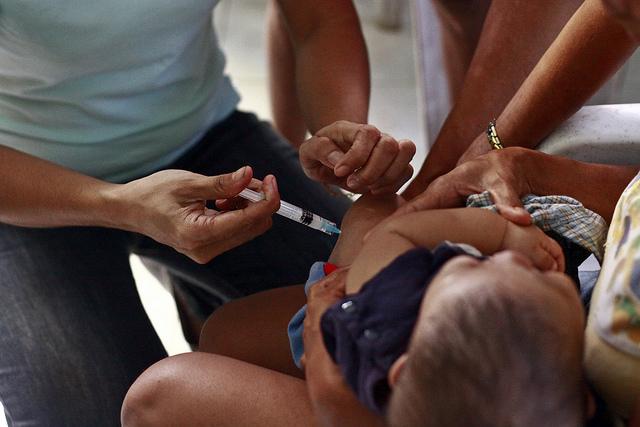Following a rigorous 6-year review, an expert committee today declared the Americas region the first in the world to eliminate measles, one of the world's most contagious diseases that takes its hardest toll on children.
The international expert committee tasked with assessing and documenting measles elimination in the region made its announcement today during a meeting of the Pan American Health Organization's (PAHO's) directing council in Washington, DC, attended by health ministers from throughout the Americas.
At a media briefing, Carissa Etienne, MD, PAHO director, said, "This is proof of the remarkable success that can be achieved when countries work together steadfastly for common goals."
The achievement today comes on the heels of the Americas region being declared free of rubella and congenital rubella syndrome in 2015.
Steps toward elimination
In the 1970s, before mass vaccination, measles was linked to 101,800 deaths in the World Health Organization's (WHO's) Americas region. Cases declined in the 1980s, but infections dropped more steeply after PAHO and its partners launched an initiative to eliminate measles in 1994, with the goal of interrupting local transmission by 2000, the agency said in a press release.
PAHO said its measles elimination strategy involved conducting one-time national campaigns to bring all children ages 1 to 14 up to date with vaccination against measles, boosting vaccination strategies to get levels up to at least 95% each year, and conducting follow-up immunization every 4 years to make sure at least 95% of young children received their second dose.
Besides country health ministries, 14 groups were deeply involved in measles elimination efforts, among them the US Centers for Disease Control and Prevention (CDC), the US Department of Health and Human Services (HHS), Canadian health agencies, the Sabin Vaccine Institute, the March of Dimes, and the Measles & Rubella Initiative.
In 2002, Venezuela was the last country in the region to experience an endemic measles outbreak, after which the disease was considered interrupted.
Several countries in the Americas have reported imported cases, some that triggered outbreaks in pockets of undervaccinated people, such as an early 2015 outbreak in the United States linked to a Disney theme park in California. Similarly, Brazil experienced an outbreak that started in 2013 and lasted more than a year, with the last case reported in July 2015, according to PAHO.
Verification: a challenging process
At today's media briefing, Marceline Dahl-Regis, MD, MPH, who led the international measles elimination expert committee, said the task of verifying measles was challenging because of geopolitical difficulties and migrant populations with porous borders, for example. She added that countries had to register no new cases for 1 year after measles transmission was interrupted.
PAHO said the expert group reviewed evidence on measles elimination presented by all of the countries from January 2015 through August 2016.
Mary Agocs, MD, MSc, senior advisor with the Measles & Rubella Initiative who is also with the American Red Cross, said the countries need to remain vigilant to keep the region's measles elimination status. "The world is interconnected—measles anywhere is a threat to people everywhere."
The expert group recommends that all countries increase their surveillance and maintain population immunity levels through vaccination.
See also:
Sep 27 PAHO press release

















